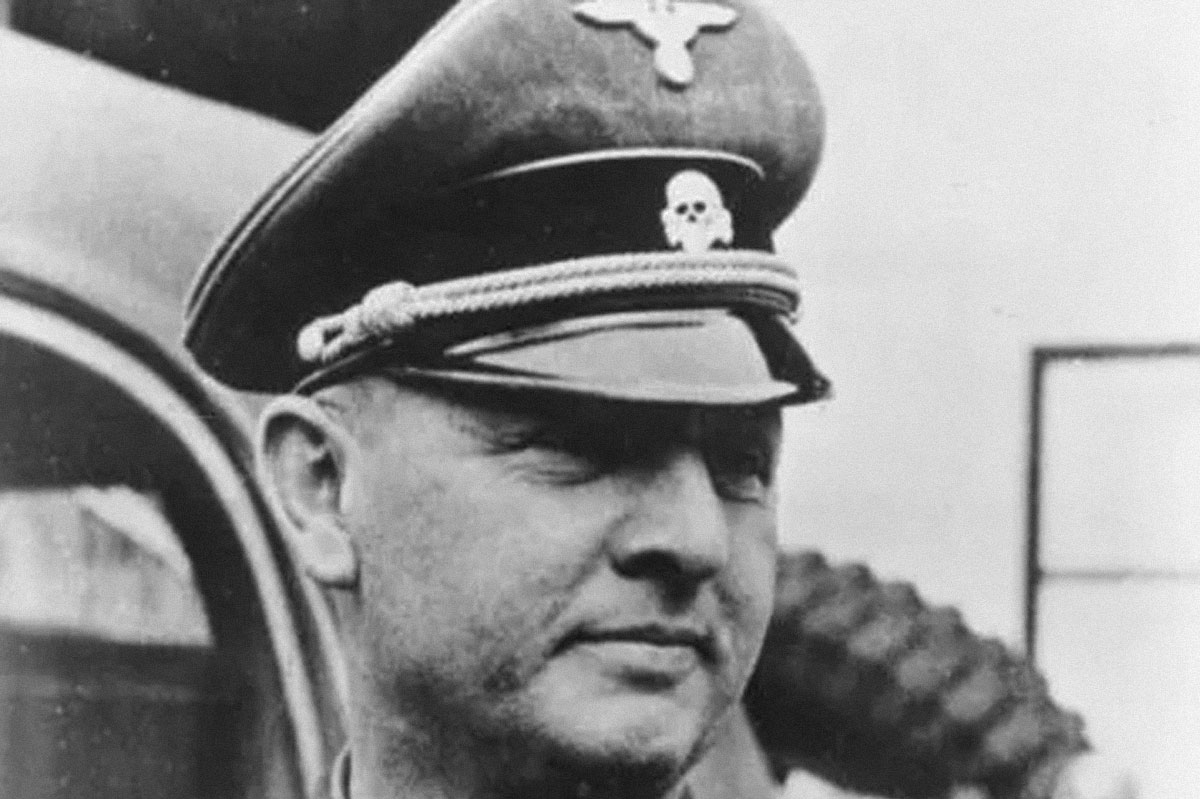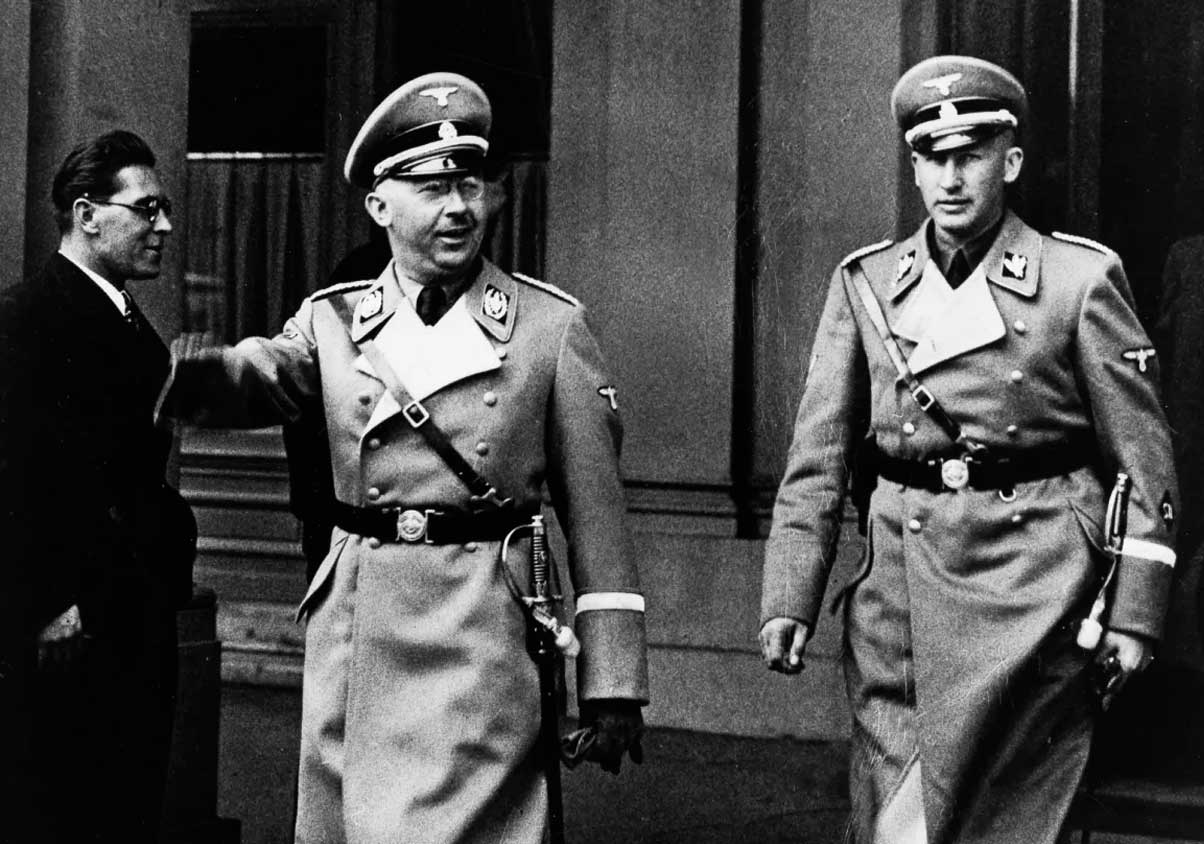
Hitler visits troops in Poland in 1939. Photo: ALAMY / The Times
The newspaper The Times reported on newly published revelations of a former leader of the "death squads," responsible for the extermination of hundreds of thousands of Jews.
The third man after Hitler and Himmler, Bruno Streckenbach, whose deathbed interview was just published, shed light on a question that has tormented historians: to what extent was the Holocaust from the very beginning Hitler's own plan, and to what extent was it the improvisation of subordinates trying to implement his anti-Semitic rhetoric in practice.
Bruno Streckenbach was a man who was clearly aware of all the events of those years. Here's how The Times describes him:
«...Leading the SS death squads that exterminated thousands of people across Poland in 1939, and creating the Einsatzgruppen that killed hundreds of thousands of Jews during the "Holocaust by bullets," he organized the most brutal atrocities of the Third Reich...»

Bruno Streckenbach. Photo: The Times
The newspaper reports on how the recording of Streckenbach's story, shedding light on one of the main questions of the Holocaust: whether Hitler personally directed the plan to exterminate European Jewry, reached us.
«...In 1977, dying of heart disease and throat cancer, Bruno Streckenbach told a German journalist, who collected everything related to Nazism, Gerd Heidemann, the story of his life. Last year, after the journalist's death, his archive, including the recording of the "revelations" of the former brigadier general, was handed over to the Hoover Institution at Stanford University, which provided The Times with this recording...»
THE SECOND PERSON IN THE CHAIN OF COMMAND AFTER HIMMLER
Brigadier General Bruno Streckenbach was effectively the second person after Himmler in the RSHA, the Main Office of Imperial Security, from 1942.
«Himmler always communicated with the security office only through me», — Streckenbach said in the interview. He described Himmler as a chaotic and distracted boss who often delegated the day-to-day management of the RSHA to Streckenbach.

Himmler (left) exits the "Metropol" hotel in Vienna with Reinhard Heydrich in 1938.
Photo: GETTY IMAGES
Bruno Streckenbach, according to him, first learned about the project to exterminate the Jews from his old friend, an Einsatzgruppen officer, who by that time had led the executions of hundreds of people in Western Ukraine. Streckenbach allegedly wanted to get confirmation from his immediate superior, the head of the RSHA and one of the main architects of the Holocaust, Reinhard Heydrich.
THIS IS THE FÜHRER'S ORDER. WE CAN'T CHANGE ANYTHING
«...Heydrich was very calm, very serious, — Streckenbach said in the interview, — he sat on the edge of a large table that stood in the office, and said: «Now be silent, Streckenbach. Now listen to me very carefully. Keep your mouth shut. Do not interfere. We can't do anything about it. This is the Führer's order, directly passed down to us. He chose the SS to carry out this order. Neither the Reichsführer [Heinrich Himmler, head of the SS], nor I can change anything»...»
NOBODY BUT HITLER COULD HAVE INITIATED THIS ON HIS OWN
When asked if the Holocaust was Hitler's idea, Bruno Streckenbach replied:
«...Personally, I must tell you: I just can't imagine that anyone other than Hitler, anyone below him, could have initiated this on their own...»
By the end of the war, Streckenbach, in the rank of SS general, commanded a division that was trapped in Latvia and was captured by the Soviets.
«The Times» reminds that Streckenbach himself never stood trial, but in a deathbed interview with a German journalist, Streckenbach suggested that the accused had agreed among themselves to lie about their role in the mass killings of Jews on the Eastern Front, claiming they were merely following orders under duress, while in fact, they often took the initiative themselves.
NOT A SINGLE DAY IN A GERMAN PRISON
«The Times» does not explain how Bruno Streckenbach managed to avoid imprisonment in Germany, although prosecutors tried to accuse him of committing no less than a million murders. However, Bruno Streckenbach was captured by the Soviets at the end of the war when the division he commanded was trapped in Latvia.
«The Times» writes that Streckenbach spent 10 years in a Soviet prisoner of war camp, but Wikipedia provides this information:
«...On February 18, 1952, a military tribunal in Moscow sentenced Streckenbach to 25 years in labor camps. He served his sentence in Vladimir Prison. On October 10, 1955, he was released and sent to the FRG. A preliminary investigation conducted against him by the Hamburg prosecutor's office was discontinued in September 1956. At the end of June 1973, he was charged with numerous war crimes, but the prosecution was suspended in 1974 due to the poor health of the accused. In 1977, Bruno Streckenbach died...»
The authors of the article in the newspaper «The Times» note that the recording of the interview with Bruno Streckenbach was published just a few days after an annual study that for the first time showed that more Germans want to "draw a line" under the Third Reich than those who want to continue talking about the crimes.